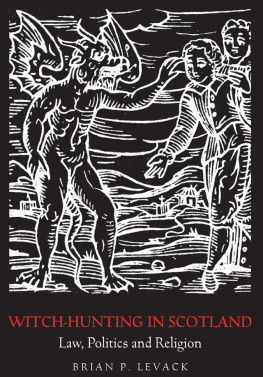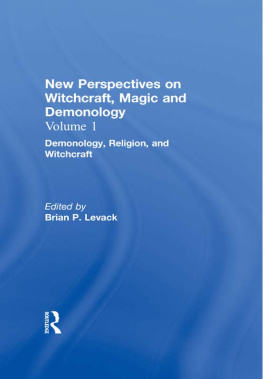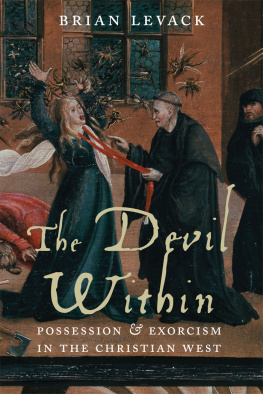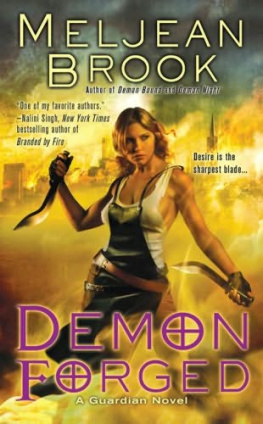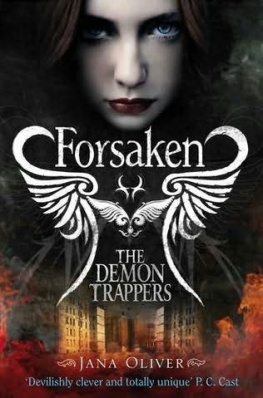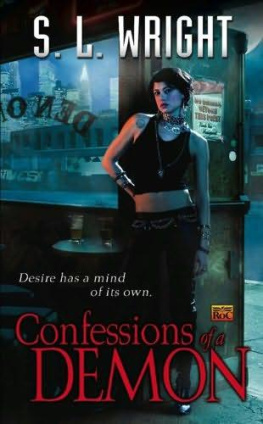Simon Levack - The Demon of the Air
Here you can read online Simon Levack - The Demon of the Air full text of the book (entire story) in english for free. Download pdf and epub, get meaning, cover and reviews about this ebook. year: 2012, publisher: St. Martin, genre: Detective and thriller. Description of the work, (preface) as well as reviews are available. Best literature library LitArk.com created for fans of good reading and offers a wide selection of genres:
Romance novel
Science fiction
Adventure
Detective
Science
History
Home and family
Prose
Art
Politics
Computer
Non-fiction
Religion
Business
Children
Humor
Choose a favorite category and find really read worthwhile books. Enjoy immersion in the world of imagination, feel the emotions of the characters or learn something new for yourself, make an fascinating discovery.

- Book:The Demon of the Air
- Author:
- Publisher:St. Martin
- Genre:
- Year:2012
- Rating:5 / 5
- Favourites:Add to favourites
- Your mark:
- 100
- 1
- 2
- 3
- 4
- 5
The Demon of the Air: summary, description and annotation
We offer to read an annotation, description, summary or preface (depends on what the author of the book "The Demon of the Air" wrote himself). If you haven't found the necessary information about the book — write in the comments, we will try to find it.
Simon Levack: author's other books
Who wrote The Demon of the Air? Find out the surname, the name of the author of the book and a list of all author's works by series.
The Demon of the Air — read online for free the complete book (whole text) full work
Below is the text of the book, divided by pages. System saving the place of the last page read, allows you to conveniently read the book "The Demon of the Air" online for free, without having to search again every time where you left off. Put a bookmark, and you can go to the page where you finished reading at any time.
Font size:
Interval:
Bookmark:
Simon Levack
The Demon of the Air
THIRTEEN GRASS
1
Blood lay on the steps near the summit of the Great Pyramid, the afternoons flowing over the mornings, the fresh over the dry. My bare foot struck it with a wet slap and came up again with a sound like cotton tearing.
Two temples crowned the pyramid: the war-gods on the right and the rain-gods on the left. This evening the blood seeping down the steps belonged to the war-god. It was the Festival of the Raising of Banners, when something more than the usual shuffling lines of anonymous captives awaited the Fire Priest and his flint knife. Today, the merchants, the long-distance traders known as Pochteca, presented their gifts to the god: beautiful dancers, the pick of the slaves in the market, trained for months to make their last day on Earth a flawless masterpiece.
Youve seen more sacrifices than I have, Yaotl. Did you ever see one like this before? The man climbing beside me had a gruff voice made gruffer by the effort of lugging our burden up the side of the pyramid. He had a solid, useful look that went with his name, Momaimati, which meant One Skilled with his Hands or, as I thought of him, Handy.
We were so near the top of the pyramid that we had to stop and wait while, above our heads, the priests ended a mans time on Earth and scattered his blood to the four Directions. The merchant who had paid for the victim and escorted him to the sacrificial stone looked on like a proud father at a wedding.
I knew a hundred ways to die. I had seen maimed, glazed-eyed prisoners of war stumbling insensibly to their fate, captured nobles clinging to their dignity to the end, and a few mad creatures dancingup the steps crying out brave nonsense about the sweetness of the Flowery Death. No two were ever the same.
No, I admitted, I never did.
Behind us a little party trudged up the steps: the next victim and his sponsor, a timid-looking merchant dressed as a seasoned warrior, with his much more ferocious-looking wife on his arm. Their sacrifice was on his feet, despite his shaven head and the deathly pallor of his chalk-whitened skin.
I looked ruefully at our own offering. I was cradling a dead mans head in the crook of my arm so that it would not flop about so obviously. The bloody mush at his temple would be harder to hide than the broken neck, but I doubted the priests would be fooled either way.
The only escort this one would have on his last journey would be Handy and I: a common man and a slave. The affable young man who had sponsored him had disappeared, along with the rest of his entourage, scattering like frightened birds when their carefully prepared, expensive victim had run amok. We had dragged the body back up the pyramid from where we had found it, broken by its fall, only to find the rest of our party vanished like mist over the lake and ourselves left with nothing for the war-god and his bloodthirsty minions except a human sacrifice who was already dead.
A novice signaled to us from the top of the steps.
Ill let you do the talking, Handy grunted as he picked up the corpses feet.
Lets try to keep him upright, I hissed. Maybe they wont notice.
Smells assailed my nostrils. It was hard to say which of them was the worst. The priests had not bathed for months and not even the sweet resinous odor of the temple fires could mask their odor of blood and stale sweat, but what was truly appalling was the stench of offal that hung in the air around them: the smell of human hearts, torn out of the breasts of sacrificial victims and cast, still beating, into the Eagle Vessel. I could all too easily imagine my own among them. Slaves, unless bought for the purpose, were not usually killed, but when the priests saw what we had brought them, I was afraid they might be angry enough to make an exception.
Handy and I got our arms under the sacrifices shoulders and heaved him forward. I told myself he looked convincingly alive-apart from his feet dragging on the stones between us and his head lolling toward each of us in turn.
Whats the matter with him? demanded the novice who had signaled to us.
Passed out, I said. They do that, dont they? Its the sacred wine they make them drink.
Hes not passed out. Hes dead, the novice stated flatly.
Dead? Handy had decided to play dumb.
It looks to me, said one of the older priests, like he fell down the steps trying to make a run for it. I wondered what all the fuss was about down there.
Perhaps he slipped. I was running out of excuses.
So he ran away. How can we offer up a creature like this to the war-god?
There were six priests here, grouped around the altar in front of the temple. Five wore short ceremonial capes and feathered head-fans hung with paper pendants and had their cheeks painted with red ocher. Among them was the Fire Priest, whose role in the proceedings was obvious from the enormous, bloody, glistening flint knife he bore.
It was not the knife which made me nervous, however, but the sixth priest, the one the others looked to for their cue, a man resplendent in a flowing cloak of blue-green quetzal feathers and a shimmering quetzal feather headdress, with a turquoise rod through his nose and an obsidian mirror on his chest. This man glared at Handy and me, and the bars on his cheeks and the star design painted around his eyes rippled menacingly. He was in charge today and he was not happy. As the bearer of Peynal, the war-gods lieutenant, he had just run a circuit of the city, killing several sacrificial victims on the way, and this after an eighty-day fast. Had he not been hungry, exhausted and irritable he would not have been human, and if he felt slighted then events could quickly turn nasty.
The war-god, he growled, needs his nourishment.
I swallowed. Needing inspiration, I looked across to the temple of Tlaloc.
I thought I saw a movement in its shadow.
Without sparing the time to think I called out: Hey, you! What are you laughing at?
Seven heads snapped round to follow my glance. Only the dead man kept his eyes on the floor.
The summit of the pyramid was as silent as a mountaintop. We were not a people given to raising our voices, and my calling out seemed to have shocked the air into stillness. Then, just as seven pairs of eyes turned back toward me and questions began to form on seven pairs of lips, a man stepped out of the shadows.
His gaunt face was stained black, black blood stuck to his temples and he wore a black cloak: a priest of the rain-god.
He stared at us, his eyes narrowed in an expression that I might have taken for curiosity if I had not noticed a barely perceptible movement at the corners of his mouth.
He was indeed laughing at us.
I stared back at him, savoring the sight and letting it register with the blood-soaked men around me. The rain-gods priest looked away and pointed toward us, and soon he was joined by another, also laughing and gesturing.
As innocently as I could, I asked: Who are they, then?
A priest of the war god answered without taking his eyes off his neighbors. Theyre nothing. Ignore them.
Why do you think theyre laughing? I persisted.
The rain-gods priests were clowning around, one of them rolling his head about as if he had a broken neck while the other made mock stabbing motions.
Because they dont know any better, growled the Fire Priest.
They love seeing us made fools of, said the novice who had called us forward. One of the biggest days of the year, with the Emperor and everyone watching-and were arguing over a stiff!
Two of his elders spoke at once. One raised an arm, but Peynals bearer stepped sharply round the altar to restrain him. One of the men from the neighboring temple had fallen over and was slapping the stuccoed floor in a display of mirth. One of the war-gods priests shook a fist at the rain-gods temple, roaring Shut up, you! in a voice they could have heard on the far shore of the lake. His colleagues stared at him.
Font size:
Interval:
Bookmark:
Similar books «The Demon of the Air»
Look at similar books to The Demon of the Air. We have selected literature similar in name and meaning in the hope of providing readers with more options to find new, interesting, not yet read works.
Discussion, reviews of the book The Demon of the Air and just readers' own opinions. Leave your comments, write what you think about the work, its meaning or the main characters. Specify what exactly you liked and what you didn't like, and why you think so.


